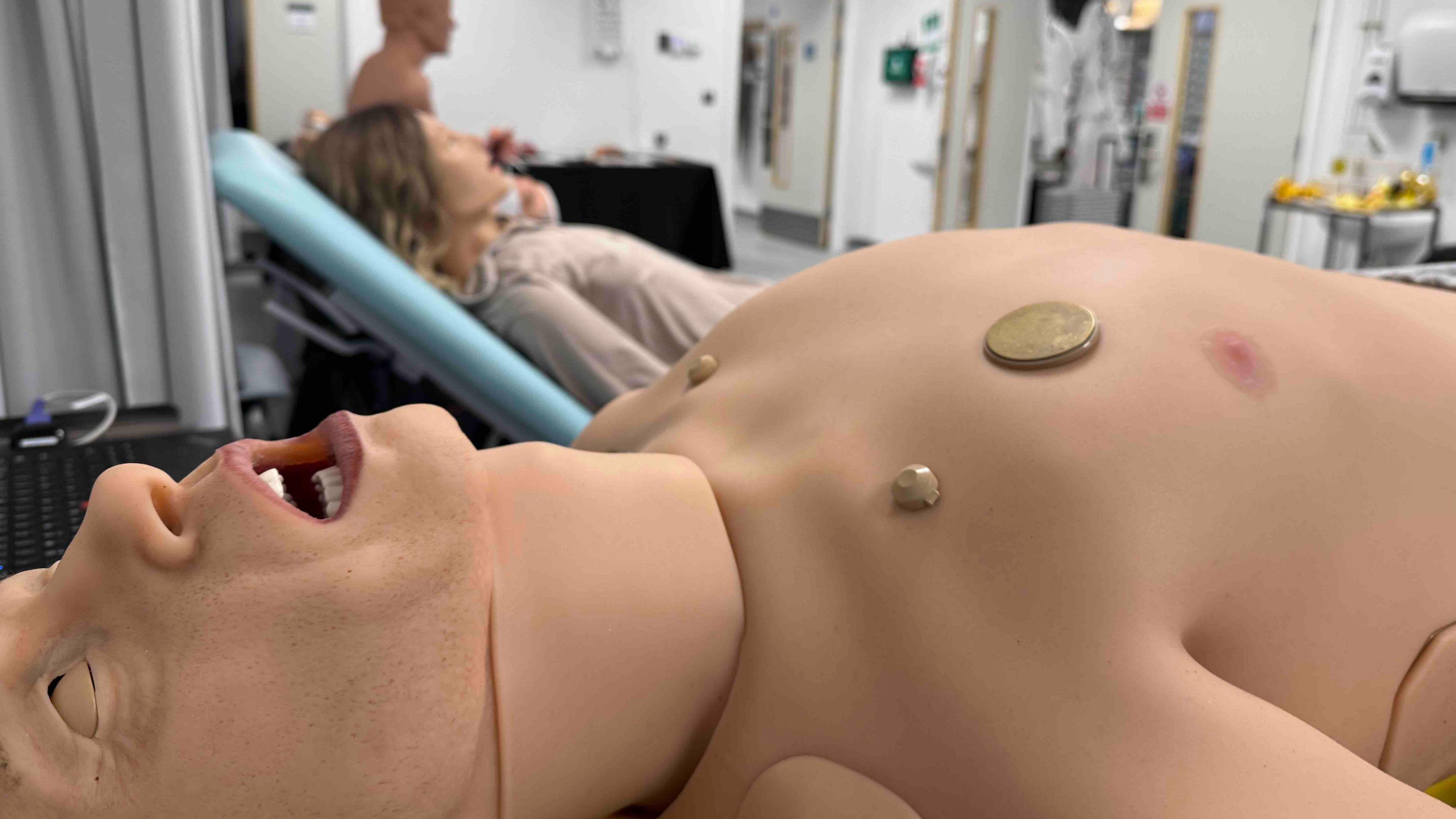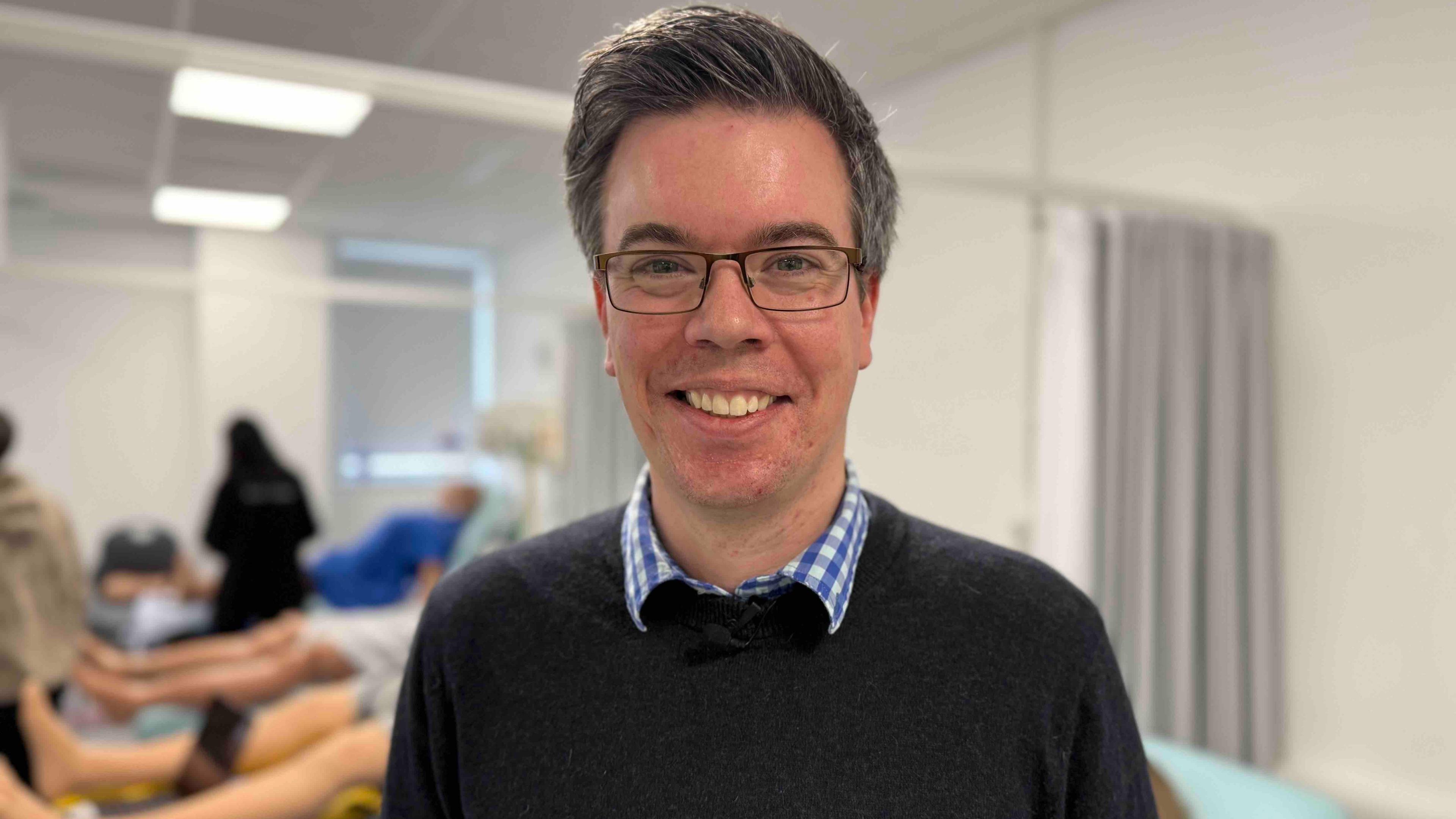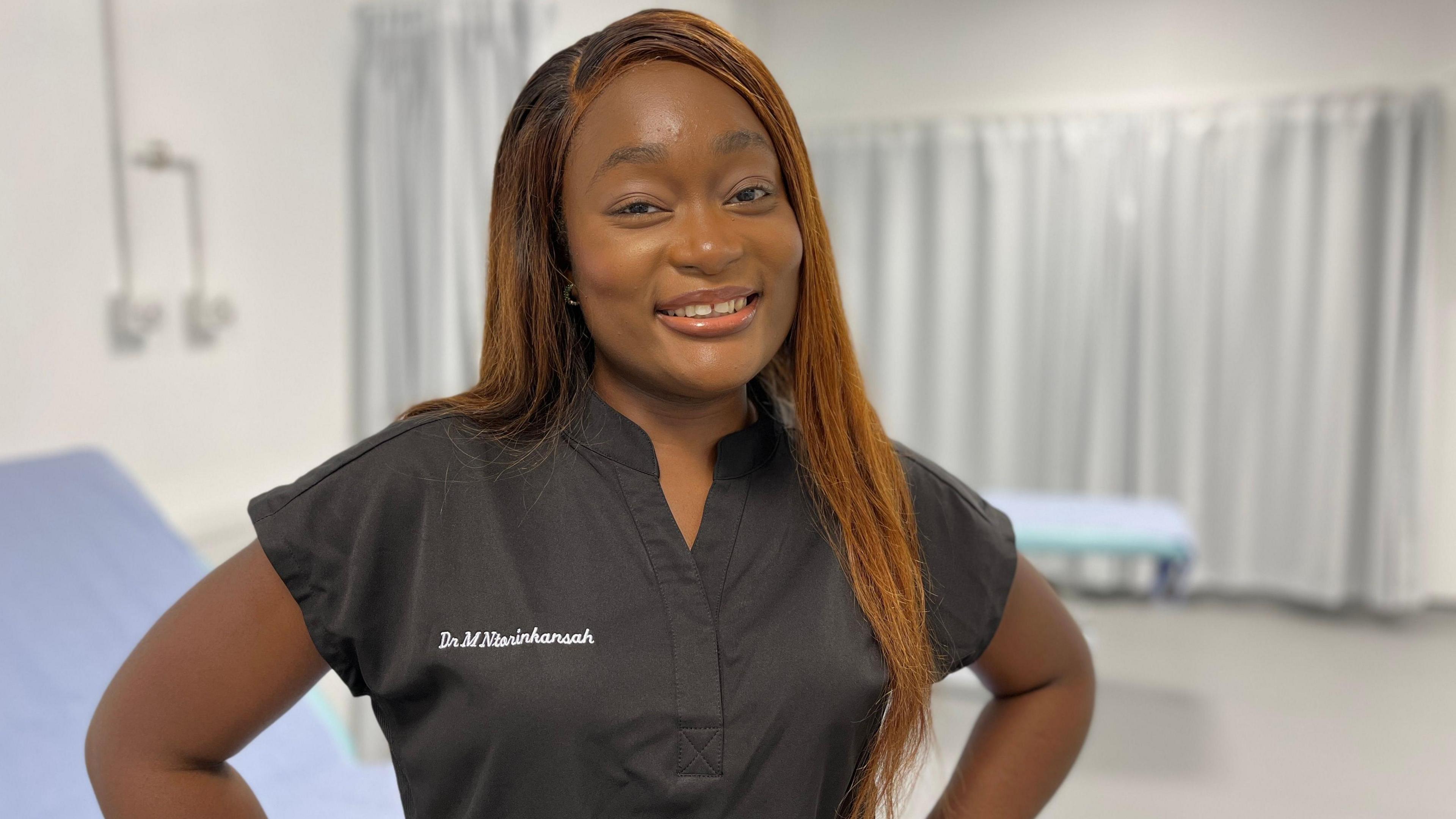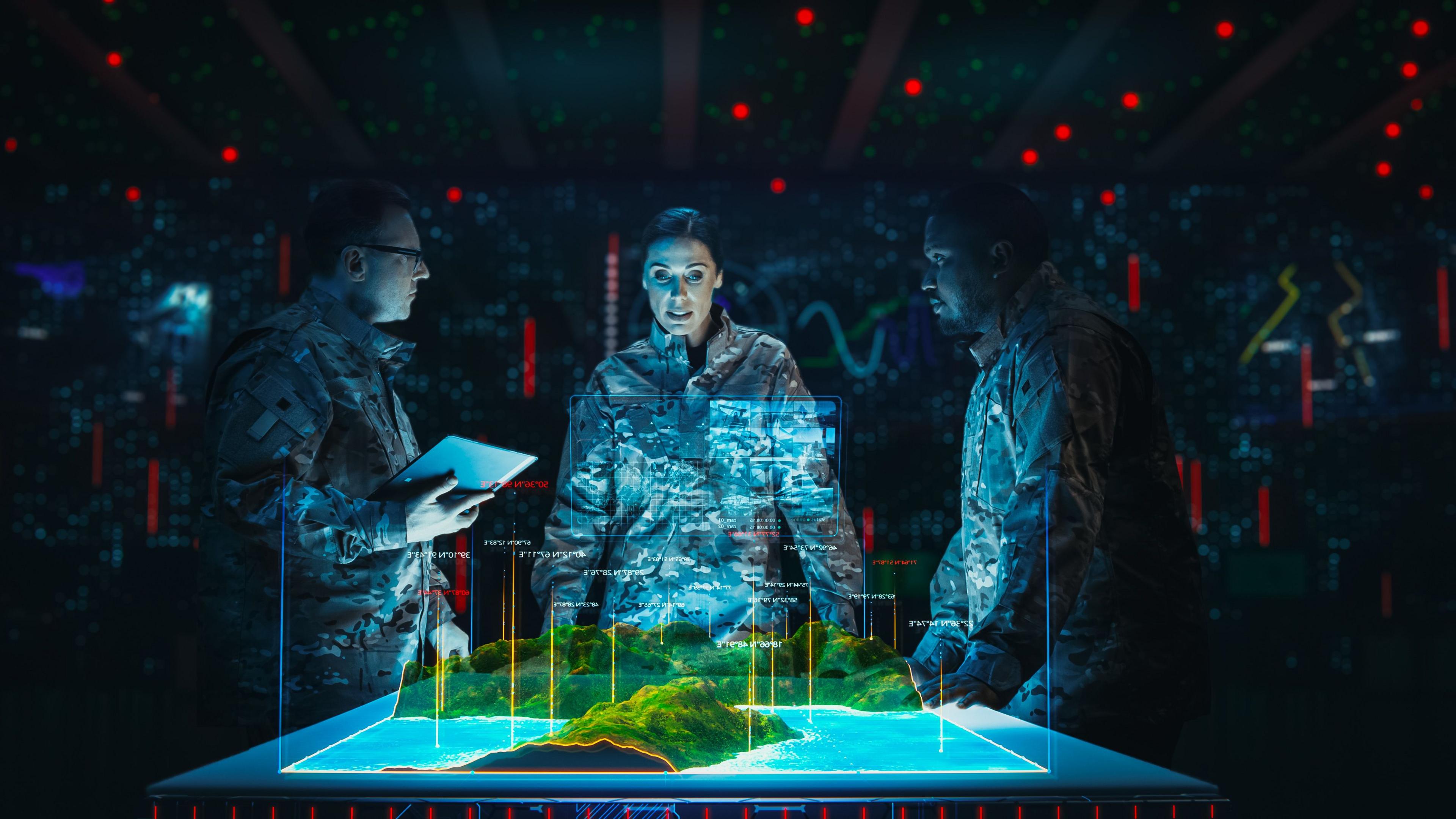Lifelike mannequins to 'transform' doctor training

The mannequins can simulate a variety of conditions
- Published
"Breathing" mannequins that simulate medical conditions are being used to train medical students thanks to a grant of almost £1.4m.
The University of Lincoln said it had invested in the hi-tech devices – which also include fake limbs with functioning veins – to "transform hands-on clinical training for the next generation of medics".
It means trainees at the city's medical school can practise skills such as taking blood, inserting catheters and diagnosing conditions before treating human patients.
The Office for Students which awarded the money, said it would help the university "accelerate" its investment "in advanced educational and simulation equipment".

Prof Jamie Read says the training will help students give patients a better experience
Prof Jamie Read, the dean of medicine at the university, said he was "really excited" by the purchase of hi-tech mannequins, which "can basically simulate any clinical condition you want".
The idea was to give students "hands-on experience" in a safe environment, "before they do it on patients".
The technology, which is due to be in place by March, also includes virtual reality facilities.
Prof Read said the medical school had worked in partnership with the University of Nottingham for a number of years, but was "now going it alone".
The new technology would allow that transition to happen, he added.
Listen to highlights from Lincolnshire on BBC Sounds, watch the latest episode of Look North or tell us about a story you think we should be covering here, external.
Download the BBC News app from the App Store, external for iPhone and iPad or Google Play, external for Android devices
Related topics
- Published7 August 2024

- Published6 October
